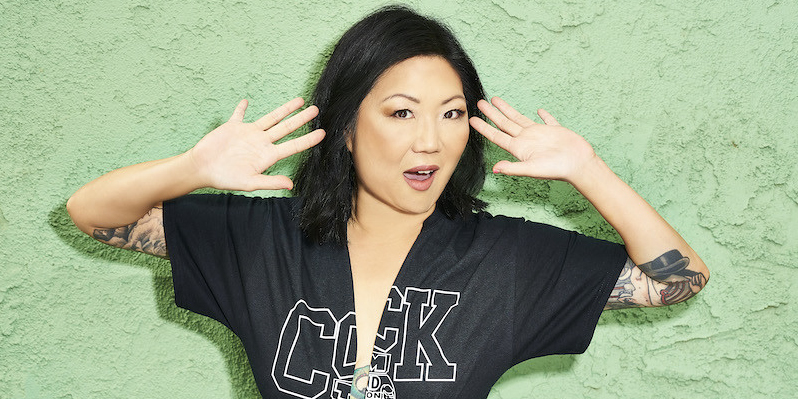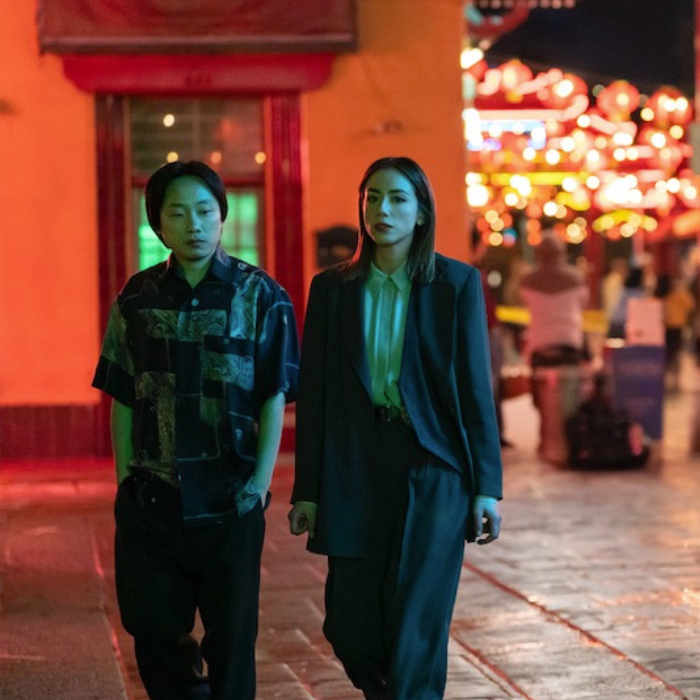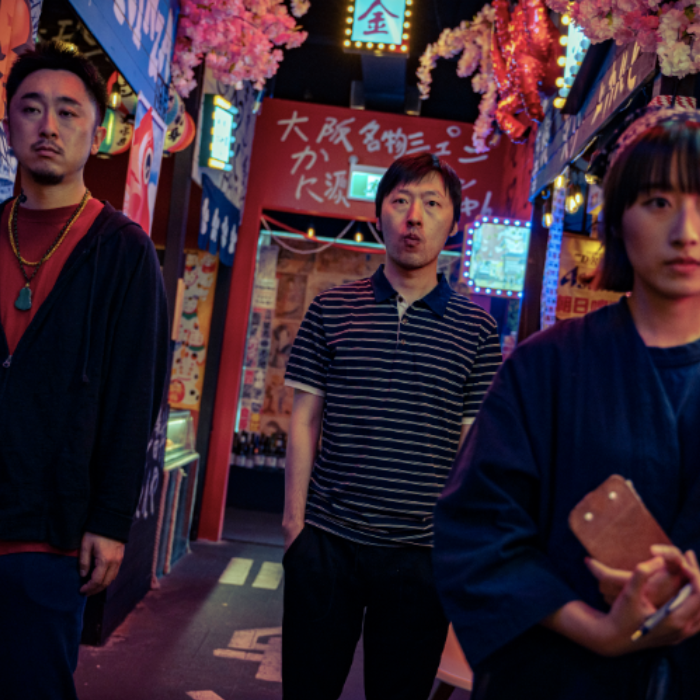Since the genesis of her career, comedian Margaret Cho has operated well beyond the confines of the rigid tropes placed on Asian Americans in media by purely being unapologetically herself.
Over the past three decades, Cho has brought her subversive nature and irreverent candor to television shows, movies and stand-up specials that have commanded television screens around the globe, reimagining what a queer Asian can accomplish within the world of entertainment.
Her latest role in Joel Kim Booster’s rom-com Fire Island places her as Erin, a homeowner in the Fire Island Pines who hosts Booster and his gaggle of friends during their annual week of debauchery and reconnection. Inspired by Jane Austen’s Pride and Prejudice, Amy Heckerling’s Clueless and Booster’s own experiences, the Andrew Anh-directed film romanticizing the historic queer enclave is destined to become a cinematic classic.
Cho opened up to The RepresentASIAN Project’s managing editor Nathan Sing on the celebration of the Asian LGBTQ+ experience in Fire Island, the illusion of safety in queer spaces and her journey recovering the Asian American history that has long been intently erased.
When you saw the script for Fire Island and read Joel Kim Booster’s vision on the page, what narratives and perspectives excited you about the film?
Margaret Cho: I was just excited even before reading the script, learning that the film was called Fire Island, which is a place I’ve been going to since 2008 and really love. And I love Joel, and I love Bowen [Yang], and Andrew was directing; that was enough for me to reach out to them [and tell them] I wanted to be in the movie. I thought it was just going to be like a cameo or something, and then I talked to Andrew, and we discussed the part of Erin, which was originally written for a man. So we figured out that was the right [part] and changed it around a little bit, but not that much, actually. What I love about the whole film is this idea that even if you’re gay, it doesn’t mean you can’t be racist, classist, sexist, homophobic or a body shamer. There are so many things about queerness that make us feel above the law [regarding] bias, but we’re not free of that and should check that. I think that’s why the whole film is really meaningful. And that’s all wrapped up in this beautifully acted, beautifully shot, beautifully directed summer romance film.
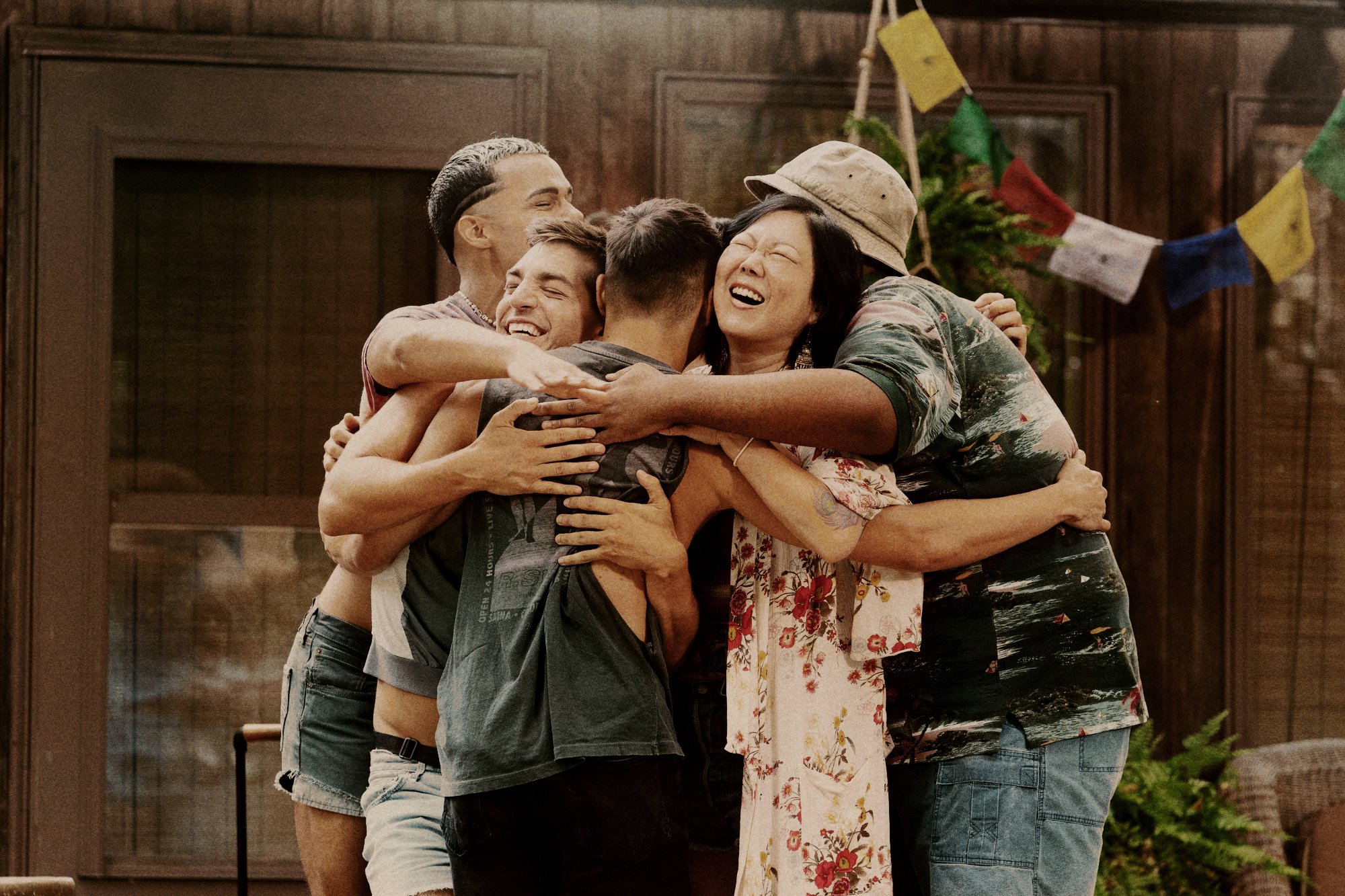
Yeah, ‘Fire Island’ explored the toxicity of the gay community while also showing how we confide in our chosen family during these moments when we feel so alienated from people that we should feel some like collective feeling with.
Yes, and that’s an unsafe thing when you’re going to queer spaces to escape the mainstream sexist heterosexual homophobic world. You think you’re going to be safe in queer spaces, but we’re not. And that’s a horrifying thing, feeling alienated from both spaces that are not ours and that are supposed to be ours. It’s something that I’m very familiar with, being in the queer community for as long as I have. There is so much bias there that we need to deal with, but I think so much is not recognized on the surface level.
“What I love about the whole film is this idea that even if you’re gay, it doesn’t mean you can’t be racist, classist, sexist, homophobic or a body shamer. There are so many things about queerness that make us feel above the law [regarding] bias, but we’re not free of that and should check that. I think that’s why the whole film is really meaningful.”
Because you would think that when one travels to Fire Island or a queer event, this is a safe space for us. But even within that, there are so many nuances and complexities within that experience that alienate so many others that are marginalized already within that community.
And that’s why before any kind of event or Pride thing that happens, we’re all going on crazy workout regimes and diets and credit card debt trying to present a self that is the most curated identity or version of ourselves so that we can be proud? It’s a very weird thing to navigate, and I don’t think anybody’s talked about that. So that’s a great thing about this movie.
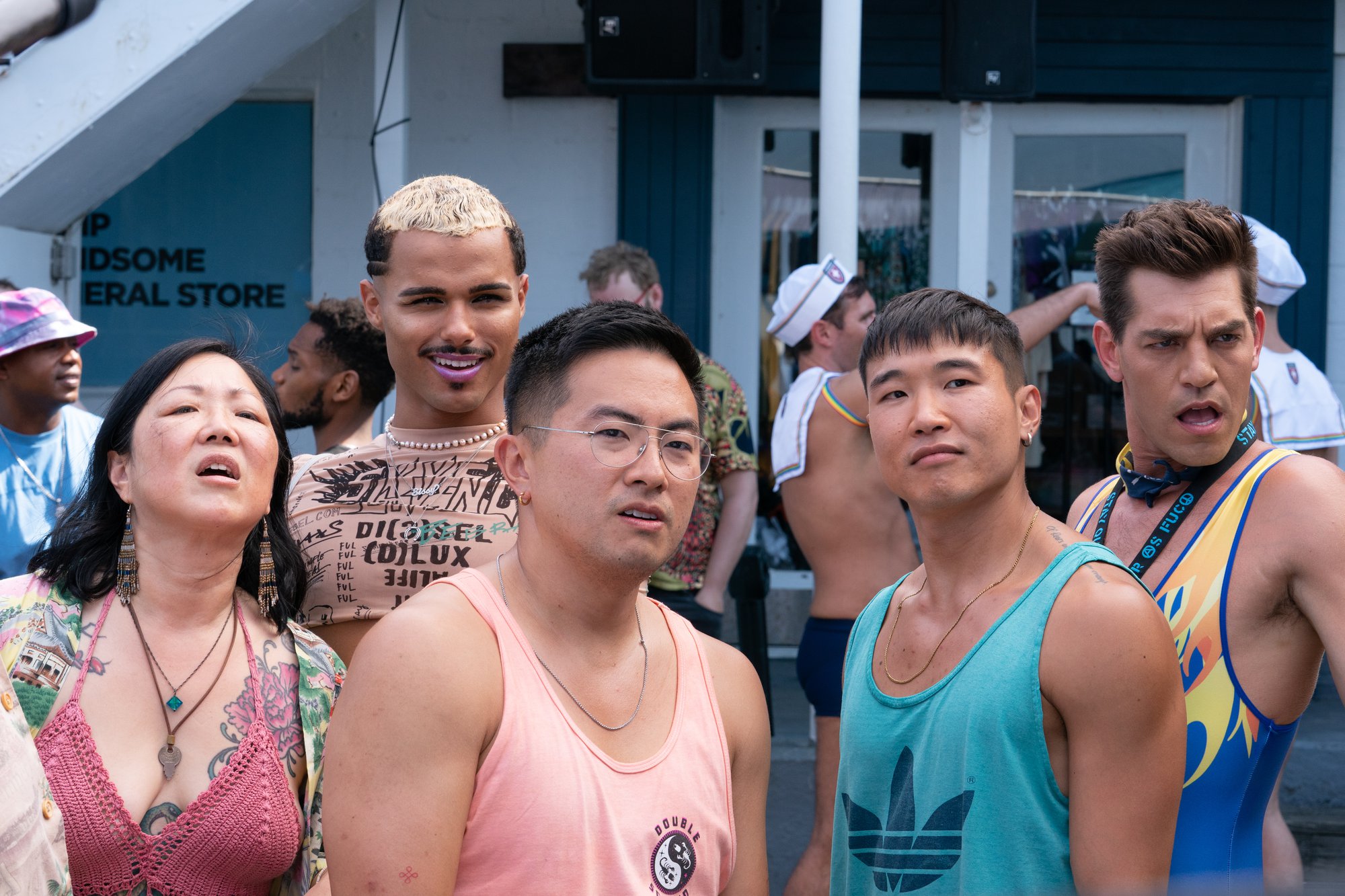
There are so many hilarious, talented, incredible people attached to this film, like Joel Kim Booster, Bowen Yang, Matt Rogers, and Conrad Ricamora. How was it working with these creative, animated, hilarious people, some of whom you’ve inspired so much?
I loved it. They’re so wonderful, so funny, and we laughed so much every day. There was a lot to celebrate just being together and enjoying this very rare moment of getting to work together. Usually, if we’re working, we’re all separated because they only need one Asian, so there’s never a time when we’re all together, but this was the time! We became that family [we were playing] when we were on the island. We all stayed in this one villa around a pool, and it felt very sacred. It was a really beautiful experience. Every day, Bowen and Matt did full line-by-line recreations from either the Real Housewives, a Tiffany Pollard I Love New York full monologue and line-by-line recreations of scenes from reality television on VH1 in the early 2000s.
Iconic!
It was so iconic! I was talking about Charm School, and all of these old VH1 shows that have come out of Flavor of Love. It was all of this stuff that was so funny to me. They would just be doing little dance routines, entire Nicki Minaj songs and choreography. Everything about it was just so exciting, so I love how much they bring the fun. They bring the party but through love, laughter, and playing.
“There was a lot to celebrate just being together and enjoying this very rare moment of getting to work together. Usually, if we’re working, we’re all separated because they only need one Asian, so there’s never a time when we’re all together, but this was the time!”
This rom-com was shot and written through the gay Asian male gaze, which is a perspective that isn’t very present within this genre of film. Was there a particular moment in Fire Island that struck you?
This is a very big film that was shot so beautifully with four queer Asian American lead actors. [That itself] is so incredible, and it was very true to Joel Kim Booster’s original vision. [Joel] was not only the star of the film, but he wrote it and is a producer. So, he was doing everything, and the studio supported his version of the story. Andrew was there to lift it up, and he had this very artistic envisioning of it. This auteur in Andrew really came out because he’s such a beautiful visual thinker that paints with film. Fire Island is a great way to see the island, see this story, and match it up with the Merchant Ivory films of the ‘80s, which are actually my favourite, and the originals of Jane Austen productions, which I think rivals all of those. I think it’s a magnificent film.
You mentioned earlier that you had frequented Fire Island a few times. What was your most memorable experience on the island?
I went with my two friends, who are both gay men, but they’re sisters like Joel and Bowen are in the movie. They both hooked up with different guys, but they brought them back to our hotel. My room was upstairs, and they were on the bottom floor, but their room was really small, and they were sharing it. So they had to blow their tricks in the same room while trying not to look at each other because they’re sisters! They don’t want to touch or make eye contact because it would be ruined, and it’d be gross and weird. You don’t want your sister seeing you sucking a dick, and you don’t want to see your sister sucking a dick. I was hearing all this from upstairs, and it was really funny.

You’re quite a weed connoisseur, and you even have a strain named after you. Since you’ve recently been in B.C. for filming, is the weed better in B.C. or in California?
It’s way better in B.C. The cultivation, the techniques, the tissue culture, and hydroponics are much more elevated in Vancouver because there’s a longer legal history for it. So the botanist and everybody who works on these strains have a lot more experience in an aboveboard legal fashion whereas in [California] it’s much newer so that technology and all of the stuff that goes into creating these gorgeous plants are not as tested [compared to in B.C.].
“[Asian] history in this country has been erased because of fear, racism, and a misunderstanding that we’re somehow less American than the people who settled this country…but we did settle it too. [We] are not part of that story yet, and have been continually left out of it up until now…but it’s important to know this history and understand that Asian Americans have deep roots in this area, this whole country and all of North America. It’s a very important story to tell.”
On this season of your self-titled podcast The Margaret Cho, you examine hate crimes against Asian Americans with each episode. What have you learned about how racism has historically been employed against the Asian diaspora through uncovering these cases on your podcast?
The cyclical nature of the hate crimes is really disturbing because they keep on recurring. They’ve been happening since 1849, and in the late 1800s, we had 200 separate Chinatowns in different cities all over the United States. They were all eradicated by white racists, and it’s a very devastating thing to think about. [Asian] history in this country has been erased because of fear, racism, and a misunderstanding that we’re somehow less American than the people who settled this country … but we did settle it too. [Asian Americans] are not part of that story yet, and have been continually left out of it up until now. The unfortunate thing about our history being erased is that we just have no idea. So it’s been great to go back and look but material to find all of this stuff for these stories is very hard to locate. I’ve had to look through different newspapers and go deep into Wikipedia, clicking on things until you got nothing left. So it’s very challenging, but it’s important to know this history and understand that Asian Americans have deep roots in this area, this whole country and all of North America. It’s a very important story to tell.
Fire Island is streaming now on Disney+.
This interview has been edited for length and clarity.
Like this post? Follow The RepresentASIAN Project on Instagram, TikTok and YouTube to keep updated on the latest content.







